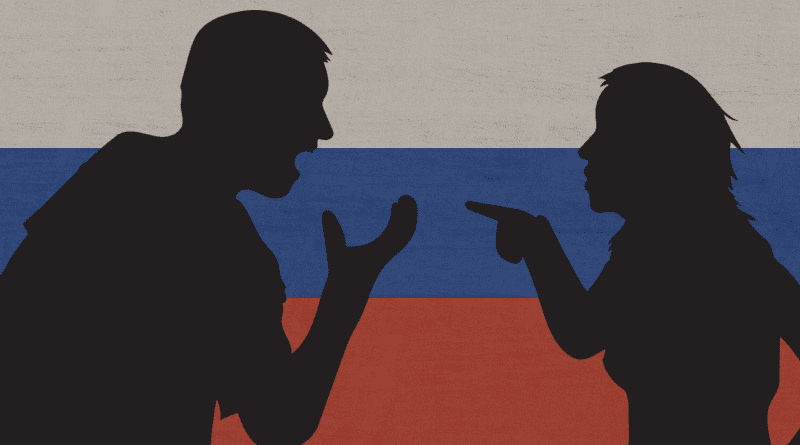Civil War In Russia Unlikely Unless West And Russian Emigration Back Ethnic Activists – OpEd
By Paul Goble
The conflict between the authorities and society in Russia bears an “exclusively political” character, Abbas Gallyamov says; and consequently, any future conflicts are likely to be far less intense and violent than in places where political conflicts are intermixed with broader socio-economic disputes.
And that in turn means, the Moscow commentator and former Putin speechwriter says, that any conflicts in Russia in some time of troubles are more likely to resemble the American revolution than the French and be relatively non-violent because it won’t be about changing basic socio-economic arrangements (publizist.ru/blogs/112974/45084/-).
But there is one factor that could grow into something that could change all that – the threat that Russia could fall apart, an idea being pushed today by “part of Russian opposition figures, certain Ukrainian politicians and a small fraction of radical Euro deputies, Gallyamov continues.
If such people provide significant funds to groups like the Forum of the Free Peoples of Russia and promote secession, he suggests, “they will be able to attract a considerable number of potential separatists into their ranks, especially from among the representatives of numerically smaller nations.”
“With their help,” he continues, the crisis could be exacerbated by “a surge of ethno-nationalism,” leading to an upsurge in confrontation and adding a social dimension to what would otherwise remain a less explosive political conflict.
Thus, for example, “if a representative of the Nogai people begins to seriously implement plans to separate the Astrakhan region from Russia,” Gallyamov says, the Russian population there won’t take things lying down and their will be violence. “But if the opposition and the West don’t do stupid things … then there won’t be any civil war.”
To be sure, there could be some conflicts in the North Caucasus arising from local problems, but they will remain local conflicts rather than become a national conflagration. “In short,” Gallyamov concludes, what is coming shouldn’t frighten anyone as the basis conflict is likely to remain political rather than grow over into socio-economic spheres.
Gallyamov’s article is first and foremost an effort to tell the West not to get involved in supporting ethnic and regional movements within Russia, but even more than that, it is a classic manifestation of the notion widespread in Russian elites that the peoples of Russia are incapable of acting on their own.
But to paraphrase Lenin, “there are such people” and to think they can’t or won’t act on their own regardless of what the Ukrainians or the West do is to make the most profound of mistakes.

